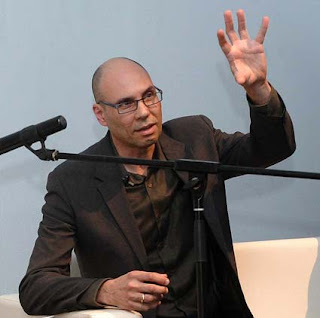Creativity is not a gift found in a few humans
only. Everybody can think creatively. In order to do that you must direct your brainpower to concrete points, in a specific way,
avoiding thoughts and believes that block creativity.
This is the main argument I develop in a new paper
I wrote for Re-Sonancias Review. You
can access the full review here.
The paper starts on page 6. As it is written in Spanish, I will summarize some of its main
arguments.
I start mentioning four thoughts that block discovering.
They were first listed by the philosopher Charles S. Peirce,
and I fully I agree with him. In a few words, these four thoughts are:
- Considering that something is absolutely correct;
- Considering that something is impossible to be known or achieved;
- Considering that something is absolutely inexplicable;
- Considering that a rule, law or system has reached its last and more perfect formulation
Afterwards I mention there is one essentially
creative kind of reasoning: abduction. This is another great contribution of
Charles S. Peirce, who lists three main kinds of reasoning (abduction,
induction and deduction) and you can find more about that in his Collected Papers.
Abduction occurs when we have two events and we
speculate (create!) which relation might connect them. This kind of reasoning is
able to offer something new! In this paper I mention as examples:
- Observing something from a different point of view or changing the observational context (that is what Edgard Varèse does in Hyperprism, a work that creates a new connection between wind and percussion instruments)
- Borrowing a non-musical theory to connect musical events (that is what I do in Modelagem III, a work in which fractal theory is adapted to create new melodic shapes and original harmonic contexts). Listen to Modelagem VII, a similar example composed for the Grupo Novo Horizonte.
- Identifying new alternatives from non-solved issues found in previous theories (that is what György Ligeti does when he analyses serial music, foreseeing a new textural music)
I analyze similar examples in performance,
particularly in the Bach’s Cello Suites. Besides, I comment that we have a
lot to learn from a direct contact with experience. Without experience we
cannot confirm our findings, we cannot observe unknown and surprising events,
and we will probably start walking in circles. Experience introduce new
elements, it is essential and really exciting.
There are other aspects of this paper that I
will develop in some of my next posting in this Blog. I hope you enjoy these thoughts on creativity!

No comments:
Post a Comment